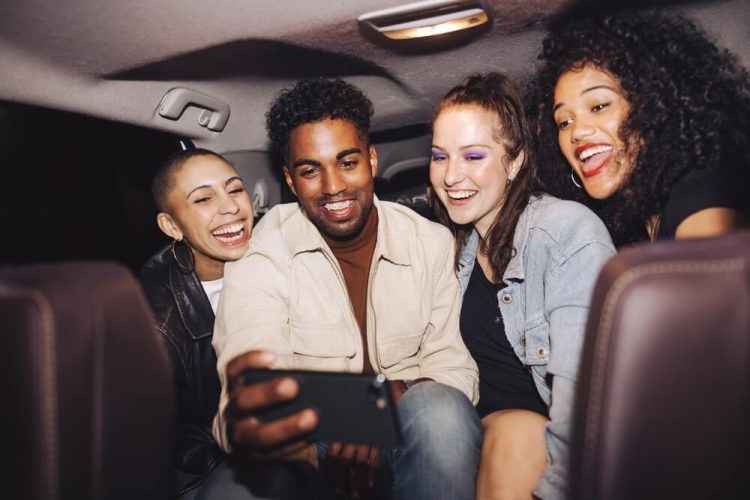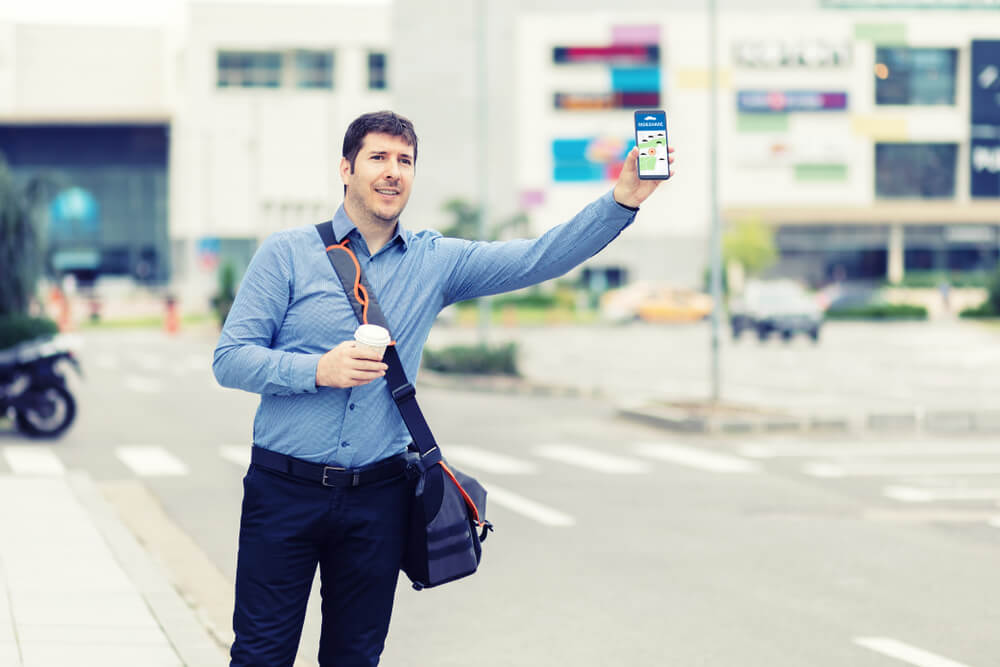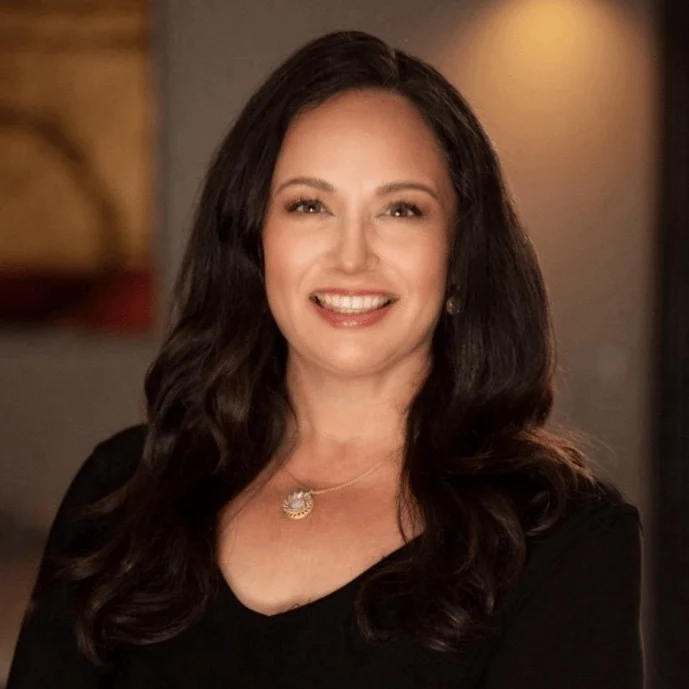
Becoming a rideshare driver is a quick, flexible way to start making extra money on your own terms, but you should secure rideshare insurance to get started. Many insurers require extra protection if you use your private vehicle for business purposes, including gig work for a rideshare or delivery app.
Driving for an app as an independent contractor comes with plenty of risks, such as a passenger getting injured in an accident, so it’s important to have a policy that keeps you fully protected. Your private auto policy may be insufficient if you get into an accident while you’re on a delivery or driving a rideshare passenger.
If you’re curious about driving for Uber, Lyft, DoorDash, Instacart, or other apps and being protected, getting a specialized policy can help you start on the right foot. Read on to explore all the ins and outs of rideshare policies for your car.
Understanding the Basics of Rideshare Insurance
Rideshare insurance is a specialized type of plan that provides coverage if you need to file a claim while driving for a ridesharing or delivery app. It’s designed to fill the gap between your personal and commercial policies the company offers.
Although the app you work for will have some level of commercial coverage to reduce your liability as a driver, their policies may have limits or be restricted to certain situations. Your personal rideshare policy can help provide additional protection if you hit the company’s policy limit or need to make a claim that isn’t covered under the company’s plan.
Finally, you may need car insurance for ridesharing if you plan on working as a driver while under one of your insurer’s personal plans. If you don’t inform your provider that you’re using your car for business purposes, you may be at risk of having your claims denied. Your provider may even terminate your contract altogether because of the increased liability. Getting the extra coverage for your personal plan can help save you a headache long-term and ensure that any claims you make go smoothly, whether they apply to your personal or business plan.
The Growing Need for Specialized Insurance in the Gig World
Before delivery and driving apps, the line between personal and commercial auto insurance was clear. Now, with the advent of ridesharing services using independent contractors, insurers have developed gig insurance and rideshare add-ons, allowing drivers to maintain personal insurance while being covered for business use.
Because you use your car when you accept rides and deliveries from driving apps, you may think that your personal policy is enough. But if you’re wondering, “Does my auto insurance cover driving for Uber?” the answer is no. Most drivers for delivery and rideshare apps are actually classified as independent contractors. That means you might have increased liability when it comes to your passengers and customers, leaving you vulnerable to potential lawsuits.
With specialized policies, you’ll ensure you have all the security you need if you do get into an accident while you’re driving for work. Ultimately, getting extra coverage with a rideshare plan can streamline the claims process, speed up repairs, and even help protect you if a customer sues after an accident.
Defining Rideshare and Delivery Insurance Policies
Rideshare and delivery policies are usually an add-on to your existing personal plans. They aren’t as expensive as standard commercial policy, so you can complete gigs each month without a significant extra cost. Because these policies supplement your personal policy, the coverage can vary based on your personal plan.

Insurance Coverage Specifics
If you’re asking yourself, “How does car insurance work for Uber drivers?”; “How does car insurance work for DoorDash drivers?”; or “I drive for a ridesharing company, am I covered?“, it all starts with having the right rideshare policy. Extra ridesharing coverage will kick in whenever you start using your car for your gig work. This includes when you’re on the app waiting for rides, picking up passengers, shopping for deliveries, and more.
Types of Coverage Offered for Delivery Drivers
Insurers can offer a wide range of coverage support options for rideshare and delivery drivers, including:
- Collision coverage for accidents
- Bodily injury liability
- Property damage liability
- Uninsured motorist coverage
- Roadside assistance
- Reimbursement for rental cars while your car is in the shop.
- Reimbursement for your ridesharing company’s deductible if you make a claim.
It’s important to note these policies usually have the same deductibles as your personal plan. So, if you have a $250 deductible for repairs when making a personal claim, that same deductible will likely apply in a rideshare or other gig situation.
Navigating the Uber and DoorDash Insurance Policies
Before you start driving, thoroughly review the policy you have through your ridesharing or delivery app. Determine if you have full or liability coverage or other benefits you can use through the app. Many big ridesharing and delivery companies have fairly high coverage limits to protect you while driving for their platform.
If you get into an accident while driving, start by communicating with your company about filing a claim with their commercial insurance. Based on the policy, you can also qualify for reimbursement through your own rideshare plan to fill in the gaps.
How Does the Claims Process Work With Rideshare Insurance in the Event of an Accident?
The claims process for rideshare policies is similar to the claims process for your personal plan, except you’ll be making a claim through the app and through your own insurer. If you get into an accident while driving for a gig, it’s a good idea to start by calling the police to make an official report. This documentation can be helpful when making a claim and determining fault.
Next, make a claim with the ridesharing or delivery company as soon as possible. You’ll also want to notify your own insurer to activate your ridesharing policy. Even if the app’s commercial policy covers the whole claim, you should still inform your insurer so they can jump in when needed.
Your insurer and the company’s insurer will then process the claim and determine what sort of compensation or reimbursement they need to provide. They may have an agent come out to look at your car, ask questions, and review the documentation from the accident. Be proactive about communicating with both companies to speed up the process and ensure your claim is fully covered.
FAQ: Rideshare Insurance
Dealing with insurance as an independent contractor can be confusing, but you’re not alone. There are plenty of drivers out there with similar questions. Review the answers to some frequently asked questions about rideshare coverage to be informed.
Do I Really Need Separate Insurance for Delivery Jobs Like Uber Eats and DoorDash?
If you drive for a delivery app, you likely need extra insurance for delivery drivers. This is because you’re using your car for business purposes. Some insurers may not require you to get add-on car insurance as a delivery driver, but many do. Regardless of their requirements, the supplementary coverage can help ensure you’re fully protected when you’re driving for gig work.
Can Gig Insurance Cover Multiple Platforms, or Do I Need Separate Policies?
Regardless of the app you drive for, your rideshare plan can provide auto coverage. For example, your plan will apply whether you drive for Uber, Lyft, or both. However, the different apps you work for will have their own commercial policy in place, so it’s essential to pay attention to which app you’re using if you ever need to make a claim.
Do I Need Separate Insurance to Deliver Pizza?
Do pizza delivery drivers pay for insurance? The answer can vary. Pizza delivery drivers can be in a gray area when insuring their cars if they use their personal vehicles for work. If you’re an employee for a pizza company and not an independent contractor, you likely have some level of coverage through your employer. However, you may also need to get extra protection. It’s important to talk to both your employer and your insurer to double-check the terms of your policy and identify any gaps.
Cover Your Driving Gig with Affordable Insurance
Driving for a delivery or rideshare app is meant to make you money, not weigh you down with costs after getting into an accident. The right supplementary plan can help you focus on your gigs instead of worrying about whether you’ll be covered if you need to make a claim.
Here at Freeway Insurance, we know that rideshare and delivery drivers may need a bit of extra support. By checking out our personal auto and rideshare insurance plans, you can get all the coverage you need to get started with any kind of driving gig. Chat with a local agent at a nearby Freeway Insurance office, visit our website for a free quote, or call 800-777-5620 to discover the benefits of ridesharing coverage in the gig economy today.



